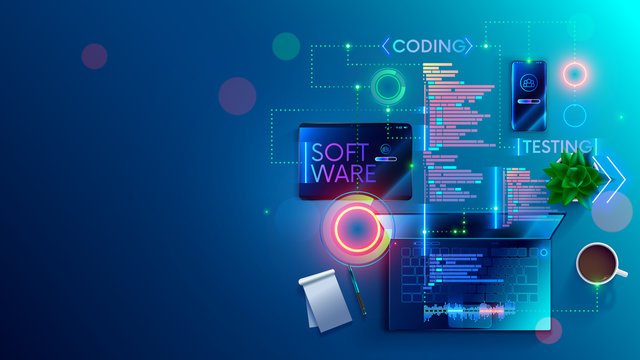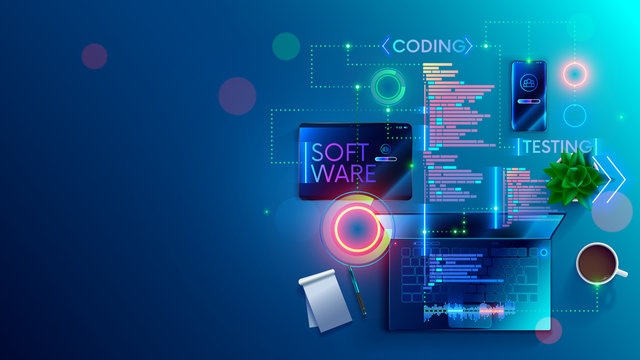
Human resource management plays a crucial role in the success and efficiency of any organization. However, manual HR processes can often be time-consuming, inefficient, and prone to errors. This is where Human Resource Management Software (HRMS) steps in to revolutionize the way small and medium-sized enterprises (SMEs) handle their HR operations.
AI HRMS is a cutting-edge HRMS platform designed to streamline and automate various HR tasks, enabling businesses to focus more on their core operations. By utilizing advanced technologies such as artificial intelligence, machine learning, and data analytics, AI HRMS presents SMEs with a transformative solution for managing their human resources.
Gone are the days of manually sifting through piles of paperwork, tracking employee information, and manually managing payroll. With AI HRMS, businesses can now effortlessly streamline their HR processes, right from recruitment and onboarding to employee performance management and payroll administration. By centralizing and digitizing HR data, this innovative software allows HR professionals to access vital information with just a few clicks, saving valuable time and effort.
Human Resource Management Software
AI HRMS also empowers businesses by providing valuable insights and analytics on employee performance, workforce planning, and talent management. With the help of intelligent algorithms, businesses can make data-driven decisions, identify areas for improvement, and enhance overall productivity. Furthermore, this software solution ensures compliance with labor laws and regulations, reducing the risk of legal complications and penalties.
In this ultimate guide, we will delve deeper into the features, benefits, and implementation of AI HRMS. From improving employee engagement to streamlining recruitment processes, we will explore how this cutting-edge software can transform your HR department and ultimately drive organizational success. So, fasten your seatbelts as we embark on a journey of elevating HR management with AI HRMS.
Benefits of HRMS for SMEs
- Improved Efficiency and Productivity
Implementing a Human Resource Management Software (HRMS) solution like AI HRMS can greatly enhance the efficiency and productivity of small and medium-sized enterprises (SMEs). By automating repetitive HR tasks such as employee data management, payroll processing, and attendance tracking, HRMS streamlines workflows and frees up valuable time for HR professionals to focus on strategic initiatives. With a user-friendly interface and intuitive features, employees can also access and update their information easily, reducing administrative burden and enhancing overall productivity within the organization.
- Real-time Data and Analytics
One of the significant advantages of HRMS for SMEs is the ability to access real-time data and analytics. AI HRMS provides powerful reporting functionalities, allowing HR managers to generate customized reports on various HR metrics such as employee performance, training needs, and turnover rates. These insights enable data-driven decision-making, helping SMEs identify trends, evaluate workforce productivity, and make informed choices to optimize their human resources strategies. With a comprehensive view of their workforce data, businesses can proactively address issues, improve employee engagement, and drive organizational growth.
- Regulatory Compliance and Data Security
Compliance with legal and regulatory requirements is crucial for any organization, regardless of its size. HRMS platforms like AI HRMS assist SMEs in ensuring adherence to labor laws, data privacy regulations, and industry-specific mandates. By automating processes and centralizing data management, HRMS minimizes the risk of errors or oversights in HR practices, such as payroll calculations and leave management. Additionally, robust security measures safeguard sensitive employee information, protecting it from unauthorized access or data breaches. This not only ensures compliance but also builds trust among employees and stakeholders, establishing a reputation for reliable HR practices.
By leveraging the benefits of HRMS for SMEs, businesses can optimize their human resource management, streamline processes, and empower their workforce for long-term success. The next section will delve into the key features and functionalities of AI HRMS that make it a cutting-edge solution for SMEs.
Key Features of AI HRMS
Streamlined Employee Onboarding Process:
AI HRMS simplifies the employee onboarding process by automating various tasks. From collecting necessary employee information to creating digital employee profiles, the software ensures a seamless onboarding experience. This feature not only saves time but also minimizes errors that may occur during manual data entry.Efficient Time and Attendance Management:
With AI HRMS, tracking employee attendance and managing leave becomes effortless. The software enables employees to clock in and out digitally, eliminating the need for manual timesheets. It also generates real-time attendance reports, allowing HR managers to easily monitor and analyze attendance data for better workforce management.Advanced Performance Analytics:
One of the standout features of AI HRMS is its ability to provide comprehensive performance analytics. By automatically gathering and analyzing employee performance data, the software offers valuable insights into individual and team performance. These insights enable HR managers to identify top performers, potential training needs, and make data-driven decisions for enhancing overall workforce productivity.
Implementation Tips for Successful HRMS Adoption
Establish Clear Objectives: Before implementing an HRMS, it is vital to clearly define your objectives and expectations. Identify the specific areas of your HR processes that need improvement, such as recruitment, employee onboarding, or performance management. Clearly outlining your goals will help guide the implementation process and ensure a successful adoption.
Involve Stakeholders at Every Stage: In order to drive successful adoption, it is crucial to involve key stakeholders from various departments within your organization. HR managers, IT personnel, and department heads should all have a seat at the table during the implementation process. By including a diverse range of perspectives, you can gather valuable insights and ensure that the HRMS aligns with the needs of all stakeholders.
Provide Comprehensive Training and Support: To optimize the benefits of your HRMS, it is essential to invest in thorough training and ongoing support for your employees. Conduct comprehensive training sessions to familiarize your staff with the new software and its features. Provide ongoing support, such as user guides and help desks, to address any questions or challenges that may arise. By ensuring that your employees feel confident and supported, you can maximize the effectiveness of your HRMS adoption.
Remember, a successful HRMS implementation requires careful planning, collaboration, and continuous support. By following these tips, you can streamline your HR processes and harness the full potential of cutting-edge Human Resource Management Software.





